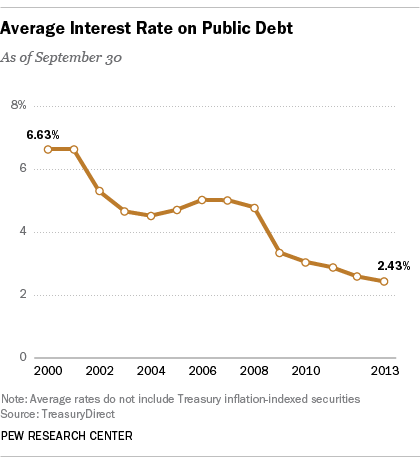We can do it tomorrow and not have to wait another 5 years. We can also cap payout to age 67, meaning you can't work another few years to boost your payout.
Sorry for the delays.
Legally, we could raise the age tomorrow. Politically, it's impossible.
Any legislator or President who signs that law is
done.
No, I am not confusing anything. You are bringing up two SEPARATE issues of ACA....
No, I'm pointing out that "rising premiums" is not the same thing as "ACA reducing Medicare costs." And now, we have to talk about how you don't understand premium rises.
Premiums outpaced inflation significantly for decades, and slowed down around 2009, in part because of the ACA. They jumped a bit more this year, because insurers were not getting as many younger people signing up as they hoped, so costs went up. The idea that the ACA is a disaster because in one single year, premiums went up as much as they did during the Bush 43 years is slightly ridiculous.
The thing is, despite Republicans now basically being in control, they won't be able to stop premiums from going up. Even if they get every single thing they want, premiums will still rise, and millions will likely lose insurance or get worse coverage. And they'll have to own it.
Anyway, the ACOs
actually work, and reduce costs by adjusting incentives to produce better outcomes. It's not enough to tell a doctor "do your job" when the economic incentives reward doctors for running tests, rather than for producing good outcomes.
LOL really? The VA is a **** show and has been for years.
LOL ya really!!!!
Despite some high-profile mistakes and issues with antiquated records systems, the VA health care system is one of the best and most liked in the US. Vets don't want major changes at the VA, and they definitely don't want it privatized. What they want is shorter wait times (i.e.
more doctors and facilities under the aegis of the VA), and some are aware of the issues with records. Many veterans groups are worried that Trump will burn the VA to the ground.
Even your own article (the CNN one) recognizes that the VA provides better care than the private sector.
The VA budget is around $180 billion/yr; an additional $5bn is a drop in the bucket.
And good luck slashing the VA budget to save money.
Treasury Department does sell bonds, but this is what you don't get.. those bonds in private hands and foreign governments are sold all the time. The Fed has been buying them. But the Treasury can easily issue 30y bonds and buy back 10y bonds (2008-2011) out there already with higher then 3% interest rates and the longer 30 years. You may not get all of them as you are right, you can't force a sale, but you can many to sell because of positions they want to move to. So what you ended up doing, without paying a "premium", you can lower the average interest rates by up to 1% (more likely .5%).
Let's try this again.
We've had exceptionally low interest rates for well over a decade, and most debt is short enough of a term that we aren't paying high interest rates. The average interest rate on federal debt has shrank since 2000. There is very little low-hanging fruit.
Yet again: If interest rates are going down, and we do a buyback, that's done at an auction. The cost of the bonds targeted for purchase go up, and will be above face value, because they are worth more than the bonds that will replace them. Believe it or not, bondholders are not raving idiots who enjoy losing money.
Buybacks make the market more fluid. They don't decrease the total interest payments.
More to the point:
Nothing you've proposed will make a serious dent in federal spending.

